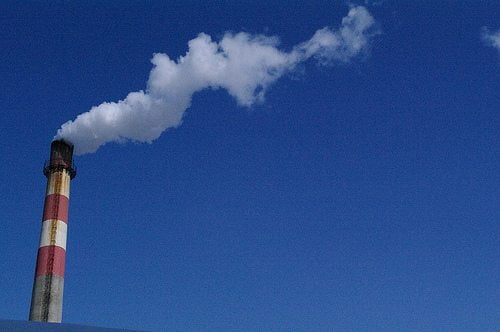

Environment
Criminals are targeting carbon trading schemes, says Interpol
Carbon trading schemes are at risk from criminal gangs and fraud, the police agency Interpol has warned.
In a new report Interpol says that a lack of understanding makes the carbon market particularly vulnerable.
Carbon trading began after the 1997 Kyoto Protocol set targets for industrialised countries for the reduction of greenhouse gas emissions. In the carbon market, carbon is assigned an economic value, allowing investors, companies or nations to trade it.
When a nation buys carbon, it is buying the rights to burn it, and a nation selling carbon is giving up its rights to burn it.
This means that companies or nations can offset their emissions by purchasing reductions made elsewhere. This is done by purchasing units, also known as carbon credits, with each equivalent to one tonne of CO2. These units are bought from producers that have exceeded their emission reduction targets and therefore have units to spare.
Carbon trading is the world’s fastest growing commodities market.In 2011, the equivalent of 10.3 billion tonnes of carbon dioxide was traded.
“Unlike traditional commodities, which at some time during the course of their market exchange must be physically delivered to someone, carbon credits do not represent a physical commodity but instead have been described as a legal fiction that is poorly understood by many sellers, buyers and traders,” the Interpol report says.
“This lack of understanding makes carbon trading particularly vulnerable to fraud and other illegal activity.”
Criminals have attempted to abuse the system through activities such as fraudulently selling carbon units that do not exist or manipulating measurements so that buyers can claim more units than were actually sold. They have also taken advantage of insufficient regulation to commit financial crimes such as money laundering or tax fraud.
Earlier this year money launderer Ian Macdonald was jailed for an £18m carbon credits scam.
Meanwhile in 2012 three men in the UK were found guilty of committing £38m worth of tax fraud related to carbon trading, in a plot that could have cost the country £2 billion.
Interpol says, “The discrepancy between the objectives of the financial players in the market – to maximise profit – and the overall objective of the Kyoto Protocol – to ensure overall greenhouse gas emissions are reduced – places diverse pressures on the regulation of the market when drawn alongside other typical commodity markets.”
It recommends that efforts be taken to raise awareness amongst law enforcement agencies of the unique circumstances of the carbon market, and to improve regulation and transparency.
Further reading:
EU rejects plan to reduce carbon footprint
Investors call for Emissions Trading Scheme fix


 Environment12 months ago
Environment12 months agoAre Polymer Banknotes: an Eco-Friendly Trend or a Groundswell?

 Features11 months ago
Features11 months agoEco-Friendly Cryptocurrencies: Sustainable Investment Choices

 Features12 months ago
Features12 months agoEco-Friendly Crypto Traders Must Find the Right Exchange

 Energy11 months ago
Energy11 months agoThe Growing Role of Solar Panels in Ireland’s Energy Future





























